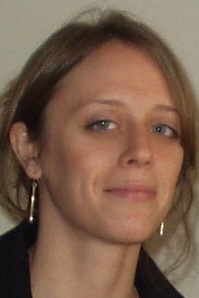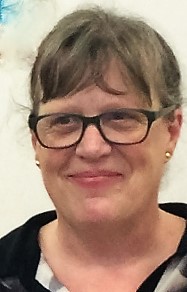| Pages in topic: < [1 2 3] > | Poll: Do you consider yourself bilingual? 投稿者: ProZ.com Staff
|
|---|
Simon Bruni wrote:
It is virtually impossible to be completely bilingual, unless the person spends an equal amount of time and effort acquiring and developing two languages with an equal amount and quality of exposure accross a wide range of circumstances (work, education, family life, reading etc) throughout life.
In other words, there are always disparities in competence between a bilingual person's two languages because the opportunities one has to develop this competence can never be identical.
True but you can get pretty close to being fully bilingual although I always notice the true mother tongue and culture but not in the words spoken but in the mannerisms and gestures i.e. when someone is under stress and does not use cognitive functions to correct and micmic the correct language and habbits of true native speakers - by mostly overdoing it
I've also noticed that most people saying they are truly bilingual can have (unconsciously) a slight preference i.e. (myself as an example to illustrate) when doing sport (I revert to English - that's what I know) when driving (I often switch to French even though I never drove in France and learned in the UK) - when counting I can do both (but will start in French and check in English! or vice-versa) and spelling (same) and telephone numbers (I prefer English) but my thinking pattern can either revert to English (i.e. situations I know how to cope in English because I've learned them in English) or French (when I feel more at ease by experience) as for dreaming (lots of people ask me I always dream accoding to the person i.e. my mother it's always in French because it's what we speak but my ex-partner it was always in English (we never spoke French))
I can vary
[Edited at 2011-04-20 11:38 GMT]
[Edited at 2011-04-20 11:38 GMT]
| | | |
Christine Andersen wrote:
Usually, the locals are not able to identify me as foreign-born when I speak or write English.
I have been told by customers that my translations into English sound natural.
So, hell yeah! I consider myself bilingual although many people would disagree looking at my resume.
same here most people who say I've got a French accent know that I'm French - I'm never asked that elsewhere when people don't know me
and when I'm in France with English people, everybody assumes that I'm English and find an English accent but if I'm alone they would not say it
I'm often asked whether I'm French or English - and have learned to translate both ways because the clients insisted on it and I got paid for it over the years
Ironically I got criticised in French but never in English!
but I always enjoy analysing and commenting on the criticism
| | | | neilmac
スペイン
Local time: 22:53
スペイン語 から 英語
+ ...
Williamson wrote: Teresa Borges wrote:
I speak French fluently, but my written French will never be as good as that of a native French speaker!
Written French depends on your education, not on your nativeness. I know quite some natives of French, who do not master the rather difficult French "orthographe",but speak their native language fluently. [Edited at 2011-04-20 09:49 GMT]
How true. I once shocked a French friend who couldn't find "oeuf" in his dictionary when I told him to look under "o"...
| | | | Allison Wright (X) 
ポルトガル
Local time: 21:53
| Agree: Speech and translating/writing are two different things | Apr 20, 2011 |
B D Finch wrote:
I also completely disagree with the statement by Simon Bruni that translators must be bilingual. A translator must be a fluent reader of their source language and be able to exercise good judgement about what they need to research. Most importantly, they have to be highly literate in their target language and a good writer with an ability to write in a variety of registers and styles.
BDF
[Edited at 2011-04-20 11:24 GMT]
Apart from my mother tongue (En), I am most fluent at speaking a language I do not translate (yet), and least fluent at speaking the language that I believe I translate best.
I would love to see what non translator, so-called bilingual people would do with the text I am currently translating!
I do think that translators use a higher standard than non translators when judging their own fluency, though.
[Edited at 2011-04-20 11:47 GMT]
| | |
|
|
|
| I do agree with you | Apr 20, 2011 |
I should have said: education being equal...
Williamson wrote: Teresa Borges wrote:
I speak French fluently, but my written French will never be as good as that of a native French speaker!
Written French depends on your education, not on your nativeness. I know quite some natives of French, who do not master the rather difficult French "orthographe",but speak their native language fluently. [Edited at 2011-04-20 09:49 GMT]
| | | | Thayenga 
ドイツ
Local time: 22:53
2009に入会
英語 から ドイツ語
+ ...
Having spent a good four decades now in a bilingual environment (including writing, speaking, readin, tranlation etc.) I do consider myself bilingual.
The following speaks for itself:
During conversation the other person asked me where I had acquired such a good knowledge of German.
This happened on more than one occasion.
| | | | | There are two definitions of bilingual | Apr 20, 2011 |
B D Finch wrote:
I also completely disagree with the statement by Simon Bruni that translators must be bilingual.
BDF
[Edited at 2011-04-20 11:24 GMT]
So a translator can be monolingual?
A translator needs at least some degree of bilingualism. And my point is that bilingualism is always a matter of degrees, even when the speaker is very fluent in both languages.
[Edited at 2011-04-20 14:01 GMT]
| | | | John Fossey 
カナダ
Local time: 16:53
2008に入会
フランス語 から 英語
+ ...
| Degrees of bilingualism | Apr 20, 2011 |
Simon Bruni wrote: B D Finch wrote:
I also completely disagree with the statement by Simon Bruni that translators must be bilingual.
BDF So a translator can be monolingual? A translator needs at least some degree of bilingualism. And my point is that bilingualism is always a matter of degrees, even when the speaker is very fluent in both languages.
I agree fully. Somewhere there is a test of French knowledge for non-native speakers, and the results range from being able to get help if you're lost in a railway station all the way to being able to hold your own in a heated and controversial debate. A translator obviously needs to be well beyond the former level, but if only dealing with printed documents does not need the latter level of bilingualism. An interpreter for one of the debating parties might, however!
| | |
|
|
|
Thayenga 
ドイツ
Local time: 22:53
2009に入会
英語 から ドイツ語
+ ...
John Fossey wrote: Simon Bruni wrote: B D Finch wrote:
I also completely disagree with the statement by Simon Bruni that translators must be bilingual.
BDF So a translator can be monolingual? A translator needs at least some degree of bilingualism. And my point is that bilingualism is always a matter of degrees, even when the speaker is very fluent in both languages. I agree fully. Somewhere there is a test of French knowledge for non-native speakers, and the results range from being able to get help if you're lost in a railway station all the way to being able to hold your own in a heated and controversial debate. A translator obviously needs to be well beyond the former level, but if only dealing with printed documents does not need the latter level of bilingualism. An interpreter for one of the debating parties might, however!
I fully agree with John. A translator needs to be bilingual on a far above-average level in order to produce high-quality work.
| | | |
I've been speaking German for 22 years now, and I do not consider myself truly bilingual. Instead, I usually call it "near-native fluency".
Many non-linguist Germans can't tell that I'm not German when we engage in conversation - but German linguists pick up on it. And my German written work these days consists of personal letters, business emails and instant messaging. (Having written that, doesn't most people's? ).... See more ).... See more I've been speaking German for 22 years now, and I do not consider myself truly bilingual. Instead, I usually call it "near-native fluency".
Many non-linguist Germans can't tell that I'm not German when we engage in conversation - but German linguists pick up on it. And my German written work these days consists of personal letters, business emails and instant messaging. (Having written that, doesn't most people's? ). ).
I would also agree that non-translators have different standards for judging fluency and bilingualism. My father-in-law loves to tell people that I speak "hundreds of languages" and, bless him, always introduces me to people that way. My rusty Russian, schoolgirl French and smattering of Spanish are hardly things to boast about, but his monolingual circle is always impressed... ▲ Collapse
| | | | | Degrees of bilingualism | Apr 20, 2011 |
Simon Bruni wrote:
A translator needs at least some degree of bilingualism. And my point is that bilingualism is always a matter of degrees, even when the speaker is very fluent in both languages.
[Edited at 2011-04-20 14:01 GMT]
I agree with Simon. If someone is fluent in a foreign language, I see no reason to argue whether the person is or is not "bilingual" as if there were some type of cut-off point.
After all, the question is "do you consider yourself..." hence requiring a subjective response.
| | | | | Completely agree | Apr 20, 2011 |
Simon Bruni wrote:
I'm sure this question will unleash much heated debate as it has in the past. My view of bilingualism is that it's always on a sliding scale. It is virtually impossible to be completely bilingual, unless the person spends an equal amount of time and effort acquiring and developing two languages with an equal amount and quality of exposure accross a wide range of circumstances (work, education, family life, reading etc) throughout life.
In other words, there are always disparities in competence between a bilingual person's two languages because the opportunities one has to develop this competence can never be identical.
There are psycholinguistic studies and researches which demonstrate that perfect bilingualism does not exist.
But it also depends on what one means with the word "bilingual" or "trilingual". If it is only speaking more than one language, with various levels of knowledge, then fine, I am trilingual
| | |
|
|
|
To be truly bilingual one has to maintain a perfect balance. Absolute perfection is hard to achieve, so it must be worked on all the time, which is what I have done throughout my life. I consider it to be the one most important key to my success as a translator.
| | | | | No I'm not, but.... | Apr 20, 2011 |
I am bl**dy good at Spanish (Castilian), even if I say it myself, and in the absence of grandmothers (Castilian speakers will understand that ref). And yes, I write it better than a significant percentage of the population, but that's a doddle when your first written language was English.
That's how I view it, agreeing with Simon and Neil's caveats about the unreachability of full bilingualism because of not having the same specialities in each language (I can't do babies in English... See more I am bl**dy good at Spanish (Castilian), even if I say it myself, and in the absence of grandmothers (Castilian speakers will understand that ref). And yes, I write it better than a significant percentage of the population, but that's a doddle when your first written language was English.
That's how I view it, agreeing with Simon and Neil's caveats about the unreachability of full bilingualism because of not having the same specialities in each language (I can't do babies in English for example).
And no, I am not going to mention the cavalier way in which the word "bilingual" is used in the Spanish education system.... ▲ Collapse
| | | | wonita (X)
中国
Local time: 16:53
because many German told me I speak perfect German, and I believe them!
| | | | | Pages in topic: < [1 2 3] > | To report site rules violations or get help, contact a site moderator: You can also contact site staff by submitting a support request » Poll: Do you consider yourself bilingual? | TM-Town | Manage your TMs and Terms ... and boost your translation business
Are you ready for something fresh in the industry? TM-Town is a unique new site for you -- the freelance translator -- to store, manage and share translation memories (TMs) and glossaries...and potentially meet new clients on the basis of your prior work.
More info » |
| | Trados Business Manager Lite | Create customer quotes and invoices from within Trados Studio
Trados Business Manager Lite helps to simplify and speed up some of the daily tasks, such as invoicing and reporting, associated with running your freelance translation business.
More info » |
|
| | | | X Sign in to your ProZ.com account... | | | | | |















